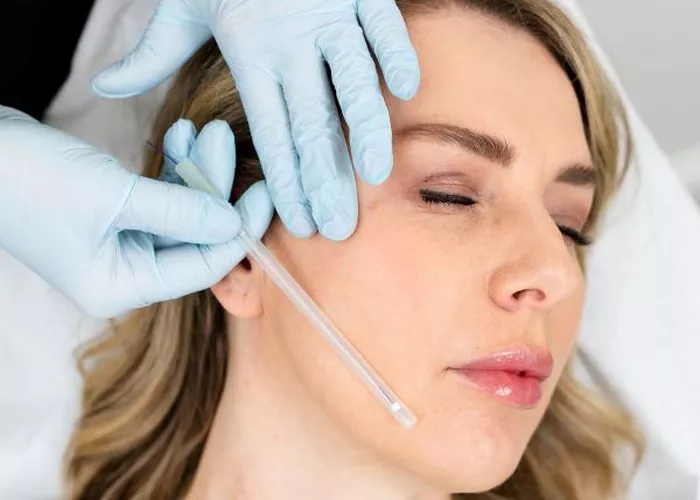Retinoid creams are a type of topical medication that contains a derivative of vitamin A called retinoids. These creams are used to treat a variety of skin conditions, including acne, fine lines and wrinkles, and hyperpigmentation. In this article, we will explore what retinoid creams are, how they work, and their benefits for the skin.
How Retinoid Creams Work
Retinoid creams work by increasing cell turnover in the skin. They stimulate the production of collagen, which can help to reduce the appearance of fine lines and wrinkles. They also help to unclog pores, which can reduce acne breakouts.
Retinoid creams work by binding to retinoic acid receptors in the skin. This stimulates the production of new skin cells and increases collagen production. Over time, this can help to improve the texture and tone of the skin, as well as reduce the appearance of fine lines and wrinkles.
Types of Retinoid Creams
There are several types of retinoid creams available, including:
Tretinoin: Tretinoin is a prescription retinoid cream that is used to treat acne and reduce the appearance of fine lines and wrinkles.
Adapalene: Adapalene is a prescription retinoid cream that is used to treat acne.
Retinol: Retinol is a non-prescription retinoid cream that is used to reduce the appearance of fine lines and wrinkles.
Retinaldehyde: Retinaldehyde is a non-prescription retinoid cream that is used to reduce the appearance of fine lines and wrinkles.
Benefits of Retinoid Creams
There are several benefits to using retinoid creams, including:
Reducing the appearance of fine lines and wrinkles: Retinoid creams can help to stimulate collagen production, which can reduce the appearance of fine lines and wrinkles over time.
Improving skin texture and tone: Retinoid creams can help to improve the texture and tone of the skin, making it look smoother and more even.
Reducing acne breakouts: Retinoid creams can help to unclog pores and reduce acne breakouts.
Improving hyperpigmentation: Retinoid creams can help to reduce the appearance of hyperpigmentation, such as age spots and sun damage.
Increasing skin hydration: Retinoid creams can help to increase skin hydration, which can improve the overall health and appearance of the skin.
How to Use Retinoid Creams
Retinoid creams should be used as directed by a healthcare provider or as directed on the product label. Here are some general guidelines for using retinoid creams:
Start with a low concentration: If you are new to using retinoid creams, start with a low concentration to avoid irritation.
Apply at night: Retinoid creams should be applied at night, as they can make the skin more sensitive to sunlight.
Use a pea-sized amount: Use a pea-sized amount of retinoid cream and apply it to the face and neck.
Avoid the eye area: Retinoid creams should not be applied to the eye area, as they can cause irritation.
Use sunscreen: Retinoid creams can make the skin more sensitive to sunlight, so it is important to use a sunscreen with an SPF of at least 30 during the day.
Side Effects of Retinoid Creams
Retinoid creams can cause some side effects, including:
Dryness and peeling: Retinoid creams can cause dryness and peeling, especially when first starting to use them.
Redness and irritation: Retinoid creams can cause redness and irritation, especially in people with sensitive skin.
Increased sensitivity to sunlight: Retinoid creams can make the skin more sensitive to sunlight, which can increase the risk of sunburn and skin damage.
Flare-ups of acne: Retinoid creams can cause flare-ups of acne in some people.
Conclusion
Retinoid creams are a type of topical medication that contains a derivative of vitamin A called retinoids. They are used to treat a variety of skin conditions, including acne, fine lines and wrinkles, and hyperpigmentation. By increasing cell turnover in the skin and stimulating collagen production, retinoid creams can help to improve the texture and tone of the skin, as well as reduce the appearance of fine lines and wrinkles. If you are considering using a retinoid cream, talk to your healthcare provider about whether it is right for you and how to use it safely and effectively.

